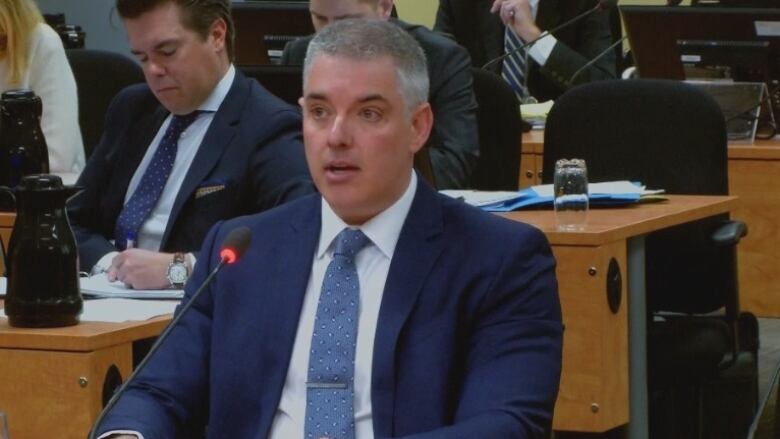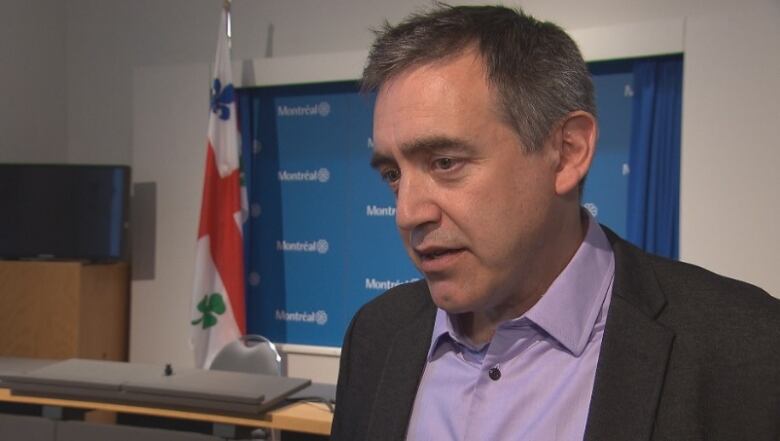SPVM investigator defends decision to track journalist's calls as Chamberland commission resumes
Internal affairs investigator said he sought warrant to find out who was trying to sully mayor's reputation

The Montreal police investigator who sought the first warrant to track La Presse columnist Patrick Lagac's cell phone records defended the move on Monday, saying he needed the warrant to determine which officers were trying to hurt Mayor Denis Coderre's reputation.
Normand Borduas, an internal affairs investigator, appeared before theChamberland commission Monday, when itresumed after a month-long recess.
Led byQuebec Court of Appeal Justice Jacques Chamberland,the commission is looking into police surveillance of journalists.
CBC/Radio-Canada is a participant in the commission.
- Surveillance data gathered by police on journalist not immediately secured, Chamberland commission hears
- Montreal police chief defends OK'ing warrant reqest for journalist's phone data
Officers leaked mayor's traffic ticket
In 2015, Borduas was asked to investigate a tip that two officers had used a computer, without authorization, to print a traffic ticket given to Coderre several years earlier, before he was elected mayor.
He said Lagac had been given a copy of the ticket, and although the journalisthadn't published anything about it, Borduassaid he learned via the mayor's office that Lagac was asking questions about it.

The officer said he believed a copy of the ticket was given to Lagac in an effortto damage the mayor's reputation, and he said he suspected two crimes had been committed: using a computer without authorization, and breach of trust.
Borduassaid he then went to a judge to request a warrant to track Lagac's incoming and outgoing calls. His request was granted.
The lawyer for the inquiry,Charles Levasseur, establishedthat Borduas asked a judge for the warrant to track Lagac's calls before filing one to track the calls of the two officers suspected of using the computer to print off the ticket.
Levasseur asked repeatedly why obtaining a warrant to track the journalist's cell phone was a higher priority thangetting a warrant to track the calls of the two officers suspected of printingthe ticket and passing it on.
Borduas said it was useful to track Lagac's calls, as it helped identify a third suspect, although he said there was never enough evidence to lay charges.
The officer's testimony is expected to continue on Tuesday.
Mayor's office involved
To obtain a warrant, police need the targeted person'scell phone number, as well as that person'sservice provider.
According to testimony on Monday, a member of Denis Coderre's staff, Catherine Maurice, gave police Lagac's cell phone number so they could proceed.
Maurice served as Coderre'spresssecretary at that timebut is now working as his director of communications.
"That it was his press secretary that gave police his cell phone numbershows to what point the whole investigation was political," said Projet Montral Coun. Alex Norris.

With files from Radio-Canada's Karine Bastien












_(720p).jpg)


 OFFICIAL HD MUSIC VIDEO.jpg)
.jpg)



























































































